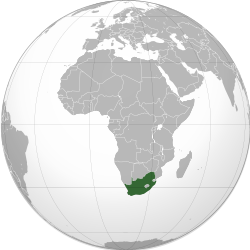| Criminal Law (Sexual Offences and Related Matters) Amendment Act, 2007 | |
|---|---|
 | |
| Parliament of South Africa | |
| Citation | Act No. 32 of 2007 |
| Enacted by | Parliament of South Africa |
| Enacted | 22 November 2007 |
| Assented to | 13 December 2007 |
| Commenced | Chapters 1–4 and 7: 16 December 2007 Chapter 5: 21 March 2008 Chapter 6: 16 June 2008 |
| Status: Amended | |
The Criminal Law (Sexual Offences and Related Matters) Amendment Act, 2007 (Act No. 32 of 2007; also referred to as the Sexual Offences Act) is an act of the Parliament of South Africa that reformed and codified the law relating to sex offences. It repealed various common law crimes (including rape and indecent assault) and replaced them with statutory crimes defined on a gender-neutral basis. [1] It expanded the definition of rape, previously limited to vaginal sex, to include all non-consensual penetration; and it equalised the age of consent for heterosexual and homosexual sex at 16. The act provides various services to the victims of sexual offences, including free post-exposure prophylaxis for HIV, and the ability to obtain a court order to compel HIV testing of the alleged offender. It also created the National Register for Sex Offenders, which records the details of those convicted of sexual offences against children or people who are mentally disabled.

